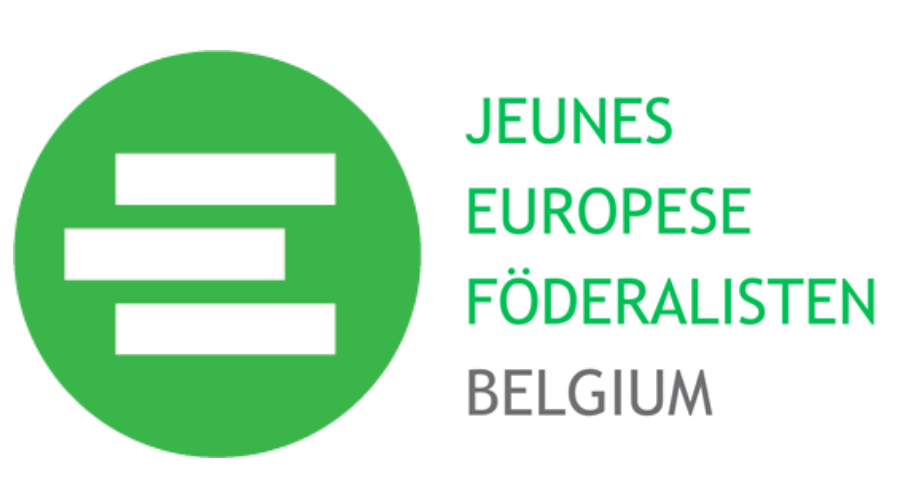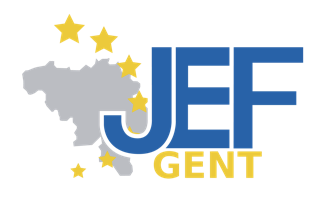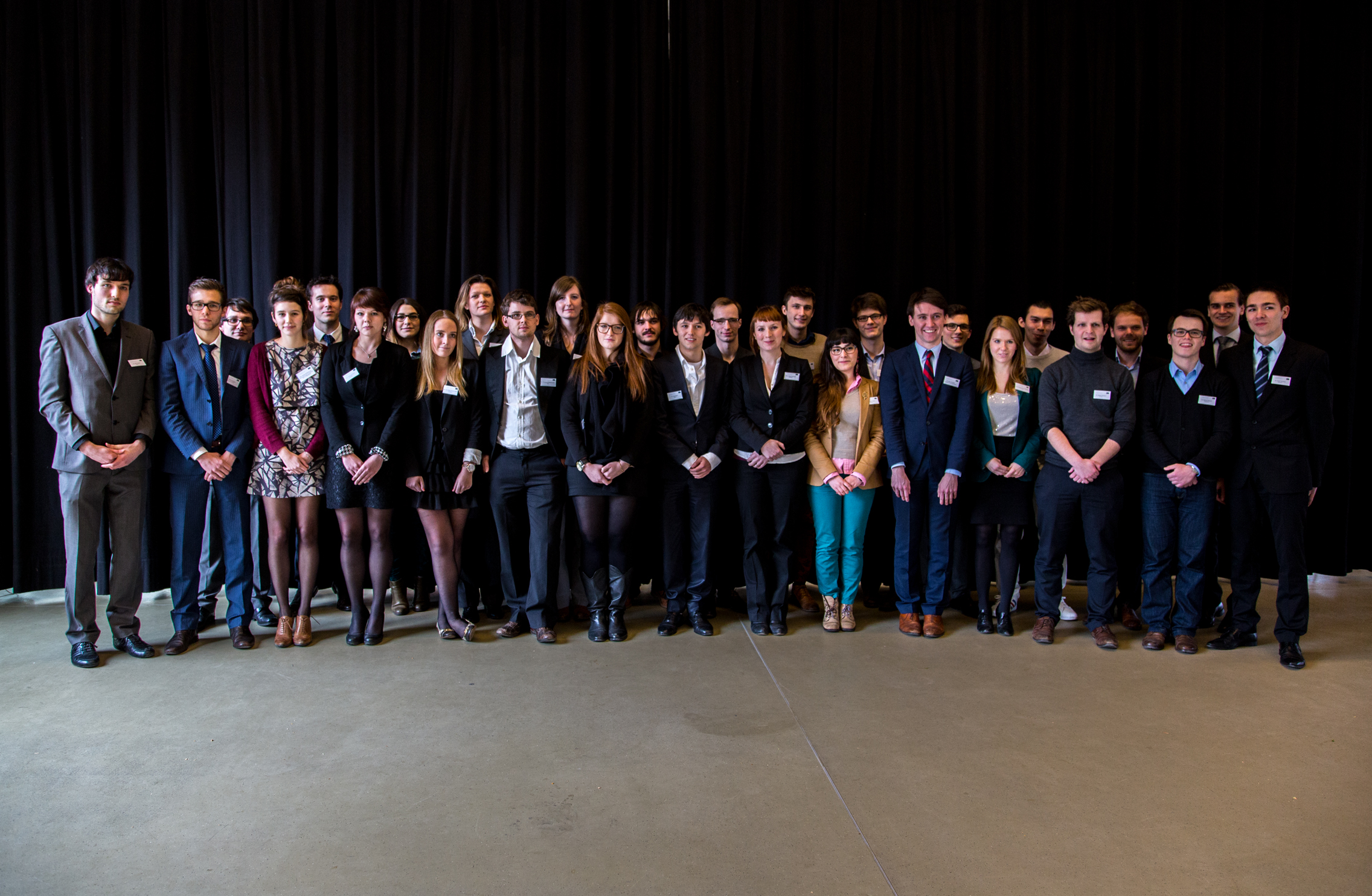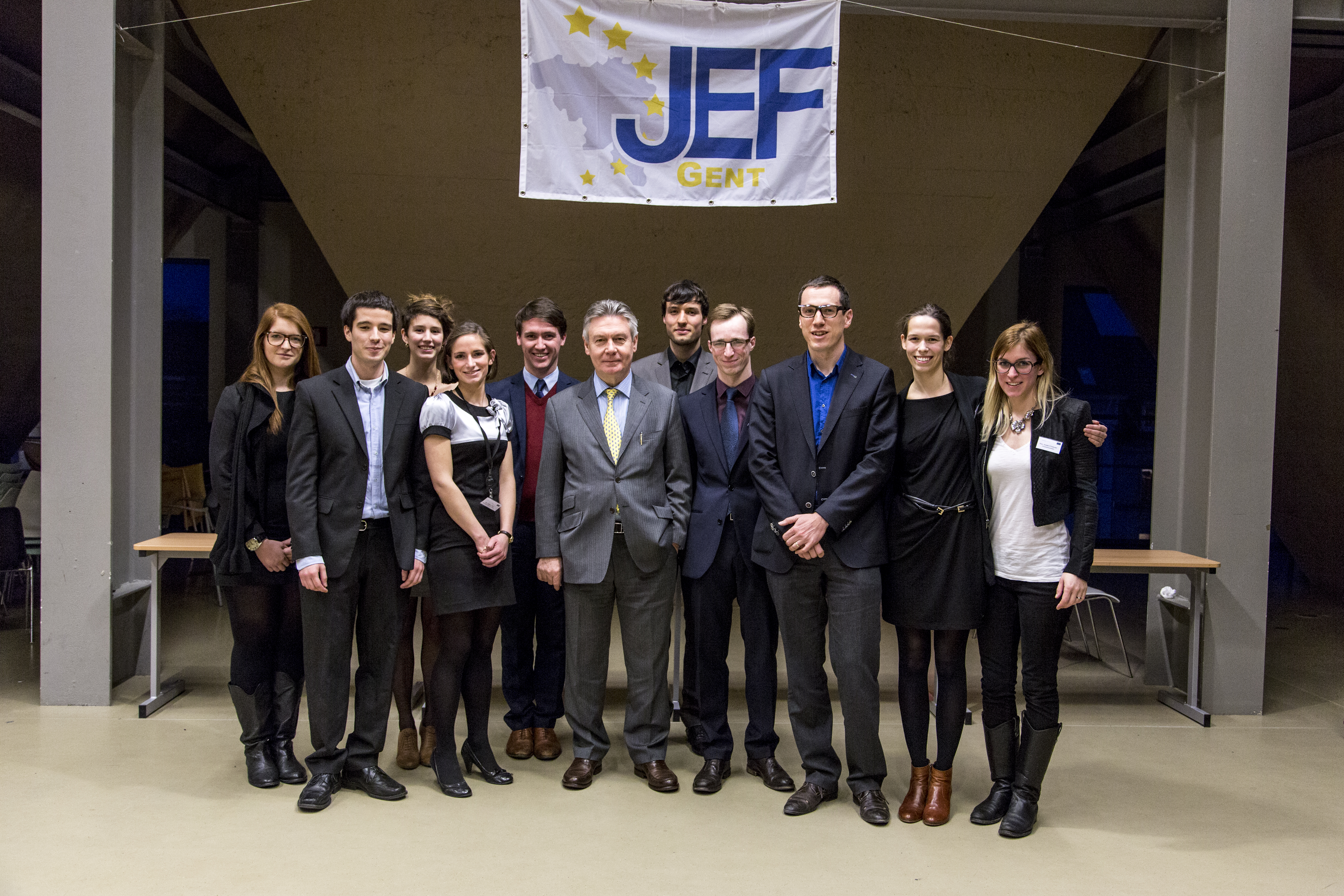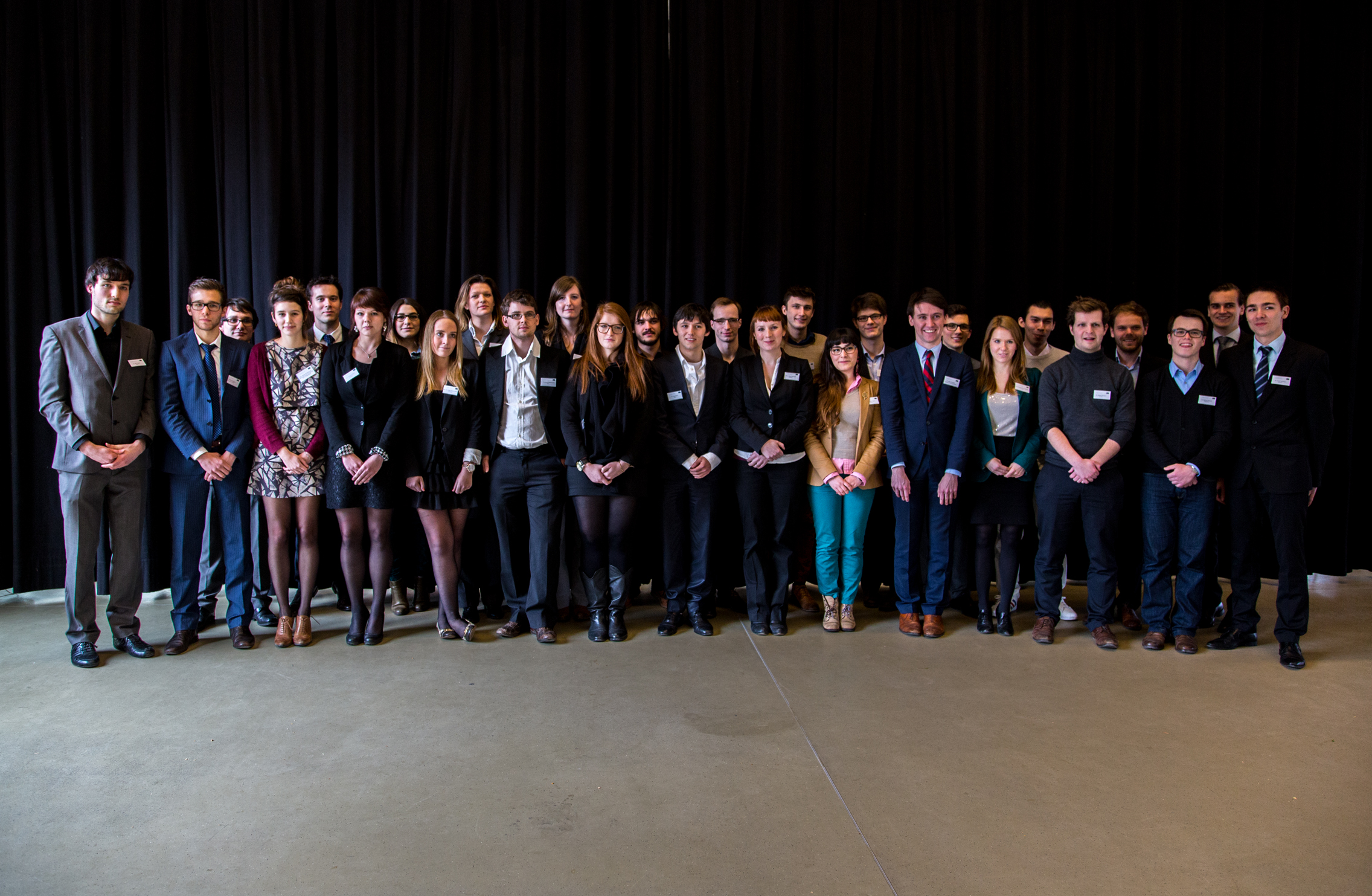Jonge Europese Federalisten – Simulatie Europese Raad 2013
Lente top in volle gang in Gent
Gent, 16 maart – Deze ochtend is de Europese Raad in Gent van start gegaan. Na de aankomst en de informele gesprekken van gisteren, staan vandaag harde onderhandelingen op het programma waarbij een antwoord op de kritieken rond de Meerjarenbegroting beantwoord dienen te worden, alsook een visie rond het gemeenschappelijk landbouwbeleid en een kader creëren rond Europese veiligheid.De Europese top, zonder een ziek Lets en Belgisch regeringsleider, ging deze ochtend meteen van start met de zware brok van de Meerjarenbegroting. Het hoofddoel van Raad is de kritiek die het parlement uitte te pareren. De onderhandelingen verliepen volgens insiders weinig constructief, en zelf de eerder overeengekomen begroting werd opnieuw op de tafel gelegd, wat tot een patstelling leidde. Insiders lieten weten dat Commissie voorzitter Janssen na enkele gespreksronden vond dat de Raad zich eindelijk eens moest focussen op het aanpakken van de problemen die er echt toe doen. Na een ronde bilaterale gesprekken werd uiteindelijk overeengekomen om toch verder te gaan op basis van de overeenkomst van de vorige top.
Waar de mogelijkheden liggen voor de Europese Raad om tegemoet te komen aan de eisen van het Europees Parlement, lijkt voorlopig onduidelijk. Enkele landen, onder wie Finland, lieten weten dat er nog steeds bespaard kan worden op de werking van de Commissie. Medewerkers van de Zuid-Europese landen konden zich meteen vinden in het idee om Oli Rehn de laan uit te sturen.
Voor de lunchpauze leek de Raad nog ver weg van een consensus, terwijl deze middag nog een overvolle agenda afgewerkt moet worden. Toen de Permanente Voorzitter, De Waele, de vergadering onderbrak voor de lunchpauze werd aan elk lidstaat de boodschap mee te geven om van de tijd gebruik te maken om “diep te reflecteren en met een constructieve houding terug rond de tafel te komen”.
Read more